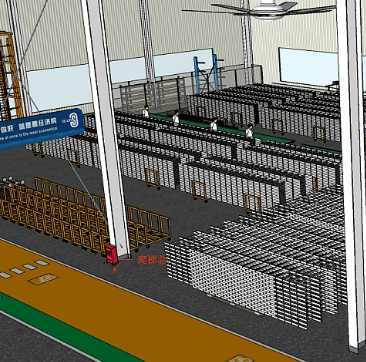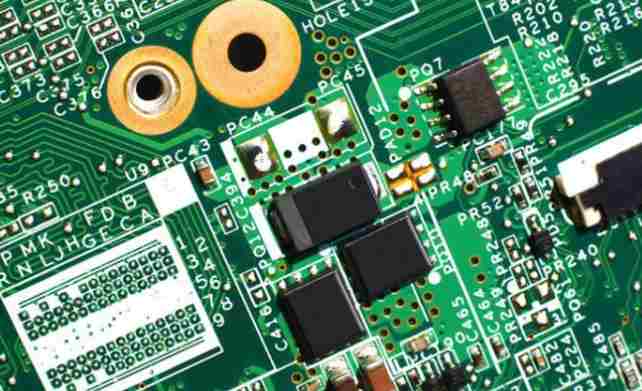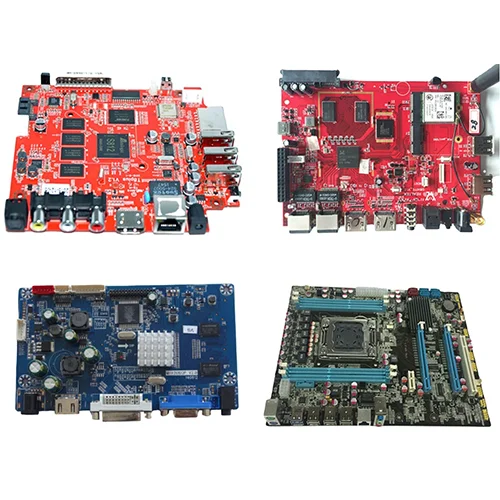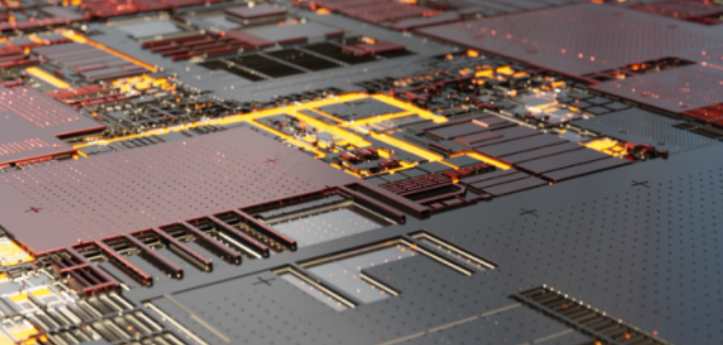
1) IPC-ESD-2020: Joint standard for the development of electrostatic discharge control procedures. Including electrostatic discharge control program necessary design, establishment, implementation and maintenance. According to the historical experience of some military organizations and commercial organizations, it provides guidance for the treatment and protection of electrostatic discharge during the sensitive period.
2) IPC-SA-61 A: Semi-aqueous cleaning manual after wel
ding. Including all aspects of semi-aqueous cleaning, including chemical, production residues, equipment, process, process control, and environmental and safety considerations.
3) IPC-AC-62A: Manual for water forming cleaning after welding. Description of manufacturing residues, types and properties of hydrogenic cleaners, hydrogenic cleaning processes, equipment and processes, quality control, environmental control, and determination and costs of employee safety and cleanliness.
4) IPC-DRM-4 0E: Reference Manual for through Hole Welding Spot Evaluation Desktop. Detailed description of components, hole wall and weld surface covering as per standard requirements, in addition to computer generated 3D graphics. It covers tin filling, contact Angle, tin dipping, vertical filling, pad covering, and a large number of weld spot defects.
5) IPC-TA-722: Welding Technique Evaluation Manual. Includes 45 articles on all aspects of welding technology, covering general welding, welding materials, manual welding, batch welding, wave soldering, reflux welding, gas phase welding, and infrared welding.
6) IPC-7525: Template Design Guide. Provides guidelines for the design and manufacture of solder paste and surface mount binder coated formforms.I Also discusses the design of formwork using surface mount techniques and describes? Kunhe technology, including overprint, double print and stage template design.
7) IPC/EIA J-STD-004: Specification Requirements for flux I include Appendix I. Including rosin, resin and other technical indicators and classification, according to the content of halide in the flux and the degree of activation of organic and inorganic flux classification; It also covers the use of flux, substances containing flux, and low-residue flux used in no-clean processes.
8)IPC/EIA J-STD-005: Specification Requirements for solder paste I include Appendix I. The characteristics and technical requirements of solder paste are listed, including test methods and standards for metal content, as well as viscosity, collapse, solder ball, viscosity and solder paste sticking properties.
9) IPC/EIA J-STD-0 06A: Specification requirements for electronic grade solder alloys, flux and non-flux solid solder. For electronic grade solder alloys, for rod, strip, powdered and non-flux solder, for electronic solder applications, for special electronic grade solder terminology, specification requirements and testing methods.
10) IPC-Ca-821: General requirements for heat-conducting binders. Includes requirements and test methods for thermal conductivity media for bonding components to suitable locations.
11) IPC-3406: Guidelines for Coating adhesives on Conductive surfaces. To provide guidance for the selection of conductive binders as alternative solder in electronic manufacturing.
12) IPC-AJ-820: Assembly and Welding Manual. Contains descriptions of inspection techniques for assembly and welding, including terms and definitions; Specification reference and outline for printed circuit boards, types of components and pins, materials for welding points, installation and design of components; Welding technology and packaging; Cleaning and coating; Quality assurance and testing.
13) IPC-7530: Guidelines for temperature curves for Batch welding processes (Reflow and Wave soldering). Various measuring methods, techniques and methods are used in temperature curve acquisition to provide guidance for the establishment of the best graph.
14) IPC-TR-460A: Troubleshooting list for Wave soldering of printed circuit boards. A list of recommended corrective actions for failures that may be caused by wave soldering.
15) IPC/EIA/JEDEC J-STD-003A. Weldability test of printed circuit boards.
16) J-STD-0 13: Spherical Lattice Array Packaging (SGA) and other high density technology applications. Establish the specification requirements and interactions required for the PCB packaging process to provide information for high performance and high pin number integrated circuit packaging interconnections, including information on design principles, material selection, board manufacturing and assembly techniques, test methods, and reliability expectations based on the end-use environment.
17) IPC-7095: Supplement to the design and assembly process of SGA devices. To provide a variety of useful operational information for people who are using SGA devices or considering switching to array packaging; Provide guidance on SGA testing and maintenance and provide reliable information on SGA field.
18) IPC-M-I08: Cleaning Instruction Manual. Includes the latest version of IPC cleaning instructions to assist manufacturing engineers as they determine the cleaning process and troubleshooting of products.
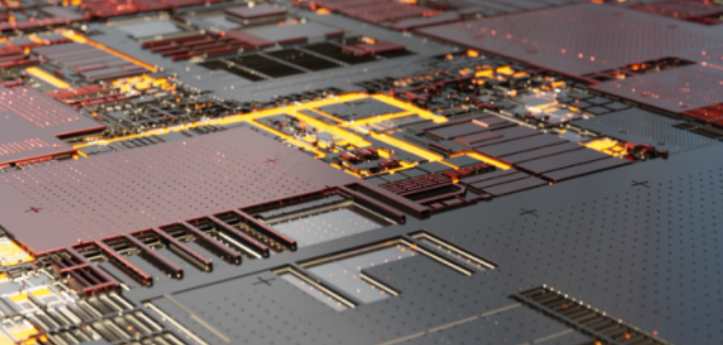
IPC-CH-65-A: Cleaning Guide for PCB assembly #e#19) IPC-CH-65-A: Cleaning Guide for PCB assembly. Provides references to current and emerging cleaning methods in the electronics industry, including descriptions and discussions of various cleaning methods, explaining the relationships between various materials, processes and contaminants in manufacturing and assembly operations.
20) IPC-SC-60A: Cleaning Manual for solvents after welding. The application of solvent cleaning techniques in automatic and manual welding is presented. The properties of solvents, residues, process control and environmental problems are discussed.
21) IPC-9201: Surface Insulation Resistance Manual. This section covers terminology, theory, test procedures, and methods for surface insulation resistance (SIR), as well as temperature and humidity (TH) tests, failure modes, and troubleshooting.
22) IPC-DRM-53: Introduction to the Electronic Assembly Desktop Reference Manual. Illustrations and photographs used to illustrate through-hole mounting and surface mount assembly techniques.
23) IPC-M-103: Standard for Surface Mount Assembly Manual. This section includes all 21 IPC files relating to surface mount.
24) IPC-M-I04: Printed Circuit Board Assembly Manual Standard. Contains 10 of the most widely used documents on PCB assembly.
25) IPC-CC-830B: Performance and qualification of electronic insulating compounds in printed circuit board assembly. Shape coating meets an industry standard for quality and qualification.
26) IPC-S-816: Technical Process Guide and List for Surface mounting. This troubleshooting guide lists all types of process problems encountered in surface mount assembly and their solutions, including bridging, missing welds, and uneven placement of components.
27) IPC-CM-770D: Installation Guide for PCB Components. Provides effective guidance on the preparation of components in PCB assembly and reviews relevant standards, influences and releases, including assembly techniques (both manual and automatic as well as surface mount and flip wafer assembly techniques) and considerations for subsequent welding, cleaning and laminating processes.
28) IPC-7129: Calculation of Number of Failures per million Chances (DPMO) and manufacturing index of PCB assembly. Benchmark indicators agreed upon by industry sectors for calculating defects and quality related; It provides a satisfactory method for calculating the benchmark index of the number of failures per million chances.
29) IPC-9261: Output estimates of printed circuit board assemblies and failures per million opportunities during assembly. A reliable method is defined for calculating the number of failures per million chances in the process of PCB assembly, which is the standard for evaluation at each stage of the assembly process.
30) IPC-D-279: Design Guide for Assembly of printed circuit Boards using Reliable Surface Mount Techniques. Reliable manufacturing process guide for surface-mount technology and hybrid technology printed circuit boards, including design ideas.
31) IPC-2546: Combination requirements for delivery of key points in PCB assembly. Material movement systems such as actuators and buffers, manual placement, automatic screen printing, automatic binder distribution, automatic surface mount placement, automatic plating through hole placement, forced convection, infrared reflux furnace and wave soldering are described.
32) IPC-PE-740A: Troubleshooting in the manufacture and assembly of printed circuit boards. It includes case records and correction activities of problems occurring in the design, manufacture, assembly and testing of printed circuit products.
33) IPC-6010: Printed Circuit Board Quality Standards and Performance Specifications Series Manual. Includes the quality standards and performance specifications set by the Printed Circuit Board Association of America for all printed circuit boards.
34) IPC-6018A: Inspection and testing of microwave finished printed circuit boards. Includes performance and qualification requirements for high frequency (microwave) printed circuit boards.
35) IPC-D-317A: Guidelines for the design of Electronic Packaging using High Speed Technology. Provide guidance on the design of high speed circuits, including mechanical and electrical considerations and performance testing


